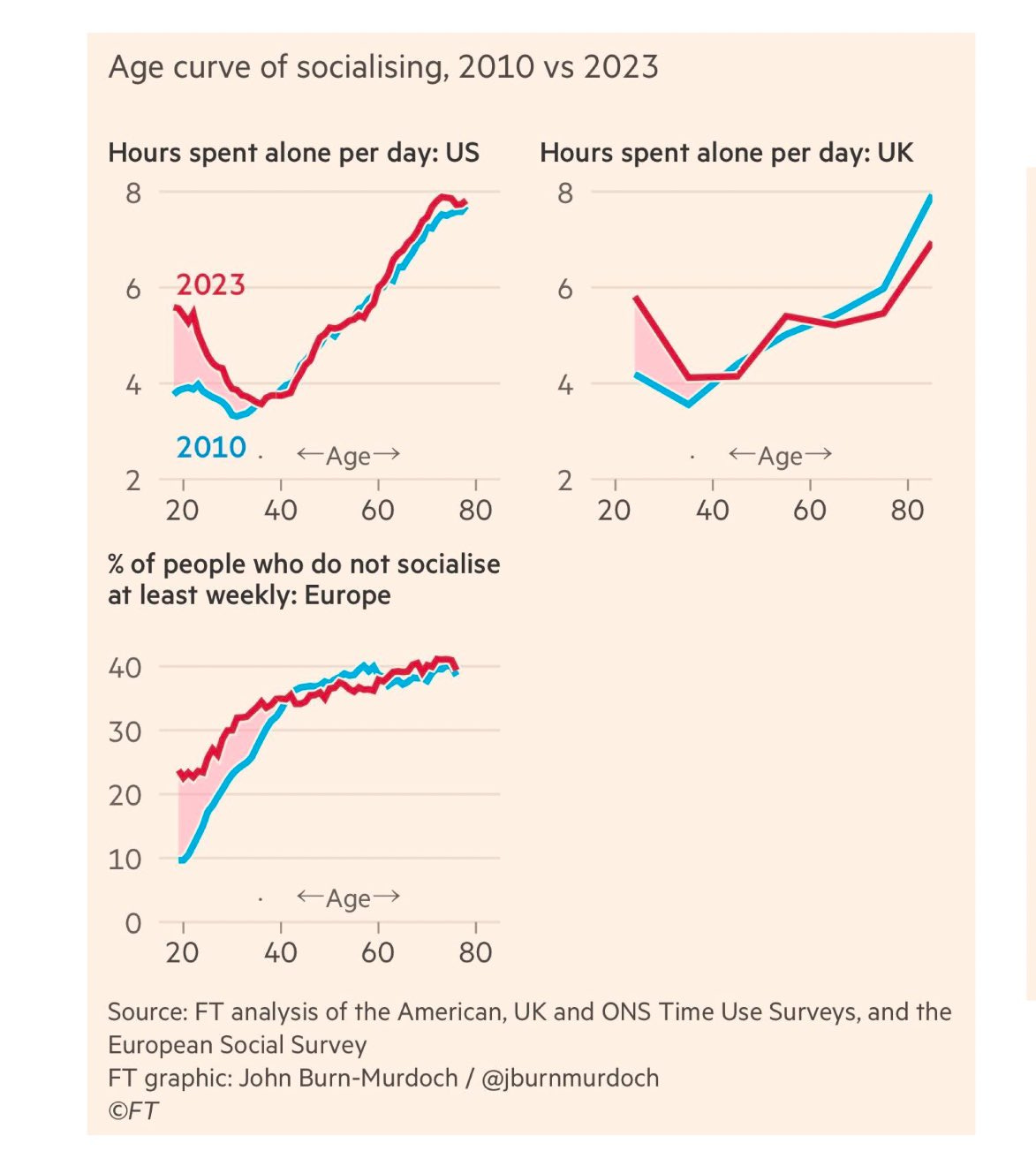My friend Jim wrote the definitive thread on parenting in the world of ubiquitous attention destroying technology this week and I can’t stop thinking about it.
I and every parent I know talk endlessly about the challenges of protecting our children’s attention spans and ability to focus in a world designed to steal that from them. I don’t have the answers, but these are my three assumptions and four rough rules for parenting right now.
This is written in a stringent style because I am not only trying to convince you to take this all more seriously, I am trying to convince myself. I do not mean this as a judgement against others out there doing their best, but as a call to arms to take this all much more seriously.
Assumption 1: Having an attention span is good.
This is for two reasons:
First, because sustained focus is inherently rewarding. It gives you access to depths of experience that are not available without the ability to focus. If you can’t focus long enough to read Middlemarch, you’re missing out. If you can’t listen to your loved ones tell you about their days without checking your phone, you are losing a part of what it means to be human.
Second, because the market rewards what is rare and more and more an ability to focus for long periods of time is rare. Protect that and you protect you and your kids competitive advantage in the world. In a world changing as fast as ours is, that’s not nothing.
Assumption 2: Real, in person, socialization is good
Humanity is a social species. We are the apex species on this planet (for now!) because of our ability to cooperate, which is itself based on a complex set of social queues, rules, and rituals, we have developed across cultures for hundreds of thousands of years. Humans are our best selves when we are in dialogue with other humans IN PERSON. We become depressed, anxious, and uncooperative when we socially isolate or limit our interactions to the flat world of the digital.
I mean, look at this chart:

Assumption 3: The world isn’t thinking about you or your children. No one is coming to save you.
No one cares about your well being or the wellbeing of your family as much as you do. No one is going to take the phone out of your hand, or stop your kid from scrolling all day.
There are powerful forces outside of your control that are trying to take the precious few years of your children’s childhood and turn them into ad revenue.
If you don’t want that to happen, you will have to do things about it. No one else will.
My wife and I struggle with how best to do this keeping in mind that there is a balancing act between protecting your kids and turning them into social freaks but here are four rough things we have developed and are imperfectly trying to implement.
1. No short form video or any kind.
While many aspects of the online world are bad, I don’t think any are as universally bad as short form video content. It eviscerates your ability to focus while providing nothing of substance. Dumb video after dumb video and then you look up and an hour of your life is gone, never to return.
We let our kids watch movies, play video games, and watch long form YouTube content, but short form video is off limits in our house. Of course they will see it at the margins, with their friends, or on rare occasions, but I want us to limit what we can limit and we limit this.
Note that list of what we allow (video games! YouTube!). It’s a more expansive list than other families with similar concerns. This is an ongoing debate in our house and I’m the one saying its fine. Why? Because we must choose our battles. We’re one family in a world of distraction. Let’s stay focused on the worst offenders (short form video, social media) and be more permissive on other far less harmful things. Do I love that Jesser videos? I do not. But I’ll take them over AI augmented NBA shorts.
Not only do we disallow short form video, we actively disparage and disdain watching it. I want my kids to think short form videos makes you stupid, because it does. I want them to think it’s as they think of cigarettes – a disgusting habit that they have no interest in.
2. Make time outside and with friends easy and normal
No matter how tired I am, no matter what the weather is outside, I will never, ever tell my kids we can’t go to the park. Yes I will throw the baseball in 100 degree weather; yes I will go make snowballs when it is 10 degrees outside.
Similarly, we are always down for the hang. Yes, I will drive you to the batting cage; yes I will take you to get art supplies for the crafting hang. Always, every time.
Yes, you can have the sleep over, yes they can all come over after school. Yes we are hosting them for shabbat dinner, and then going there for shabbat lunch. Yes we’re doing the hike after the bike ride. Yes it’s a lot, because we are a family that does a lot. This is what will sustain you in hard times, not some para-social relationship with a youtube clips account. These are the people, and the physical world, that will help raise you, and comfort you, and celebrate with you. This is what makes a full and exciting life. Never forget that.
3. Clear rules about phone hygiene.
Never more than one screen at a time. No phones at the dinner table. No screens in your room. These are our rules, for now. Yours might be different, but you should have them, both for you and for your kids.
Do we follow them perfectly? No. But they guide how we live and divergence from them are exceptions.
4. Reward the behavior you want to see, disparage the behavior you don’t.
Kids should be praised and rewarded for being kind, for being self motivated, for being creative and for working hard.
Wild suggestions for outdoor adventures should be celebrated, messy craft projects cheered on, baking disasters eaten with gusto.
Sitting on your phone with your brain leaking out of your ears is loser behavior. I say this directly to my kids. It’s bad for you. It will make you sad. Don’t do it. You are better off staring at a wall than staring at TikTok. I feel this strongly, I try and fail to live this myself, and I tell this to my kids.
Many modern parents are afraid of being judgmental. Get over that. Your job is to lead, so lead. But do so with humility. I myself struggle with how often I go for my phone. They know that. They call me out for that. They see that I try anyway. Model attention, celebrate focus, move on immediately from setbacks.
This is the way.
None of this is perfect. We don’t implement this perfectly, but we try. Because so many of us don’t feel good about our own relationship with technology, we don’t talk about it. We’re a whole culture stuck in an addiction shame cycle, but I think we should be talking about it more. Sharing strategies, working out the best way forward.
We’re in the midst of the total rewiring of our brains. That’s serious business, and we should take it seriously.
Are you thinking about this? What strategies are you implementing? I’m stumbling in the dark over here and want to hear more.
*It would help this little side project immensely if you could subscribe and forward this to others who might be interested. There’s a free level which gets you everything on here. Thanks, it’s appreciated.*





I know it wasn't the point, but the steep slope on number of hours spent alone by age in the US is shocking. UK is doing better for older people, and they're doing better than a decade ago.
love the guardrails about short form video!! I am going to try this as i do think these short bites add the the ADHD chaos already brewing in my childs mind.